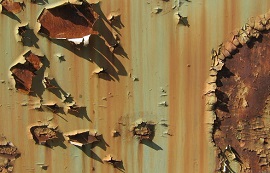Many homeowners give very little consideration to their air conditioning system until it develops a fault. What you may not be aware of is that if your air conditioning is old, it could be costing you more money each year, while failing to maintain your preferred temperature. Upgrading your air conditioner can be a significant investment, so how do you know if you have an old system and if it is time for it to be replaced.
How is an Old AC System Defined?
While you may be aware that older systems will suffer from more wear and tear as time passes, you may wonder whether your system has reached the point of being considered old. According to the Energy Star website, air conditioners over the age of ten are likely to be classified as old and in need of replacement. There are some indicators that an air conditioner is old. These include recent humidity problems, excessive debris or dust inside the home and inconsistent cooling. While it is possible to replace individual components and purchase additional items such as air filtration units or humidifiers, eventually the system will reach the point where it is not financially viable to continue propping up an old system.
Should You Wait to Replace?
While the cost is likely to be a primary consideration, delaying installing a replacement air conditioning system can still be expensive. Not only will you be waiting to enjoy affordable yet optimal home comfort, but you are likely to find that you will be paying more on your energy bills and repair call outs. Once your air conditioner has passed its intended lifespan, you will notice that there is a decline in many of the components. This can place additional strain on the compressor and other vital parts, increasing the risk of a cascade failure.
Depending on how old your air conditioning system is, you are likely to find that it is far less efficient than the models in the current market. This means that while you will need to pay out for the initial installation cost, you should see a reduction in your utility bills almost immediately.
Could You Keep an Old AC Running With Repairs?
While routine maintenance and preventative maintenance can be vital to increasing the lifespan of an air conditioning system, it can only do so much. Once your system has reached ten years of age, the likelihood is that many areas of the system will be simply too old to economically repair. You may find that your ductwork is no longer able to be sealed. You could also find that the manufacturer no longer supports your particular model with after sales support. This means that you may have difficulty finding genuine replacement parts and be forced to rely on generic components. While there are some good quality generic parts available, most tend to be of lower quality compared to manufacturer made and will last even less time. Additionally, you are likely to find that even minor parts will begin to wear out and trigger cascade failure.
